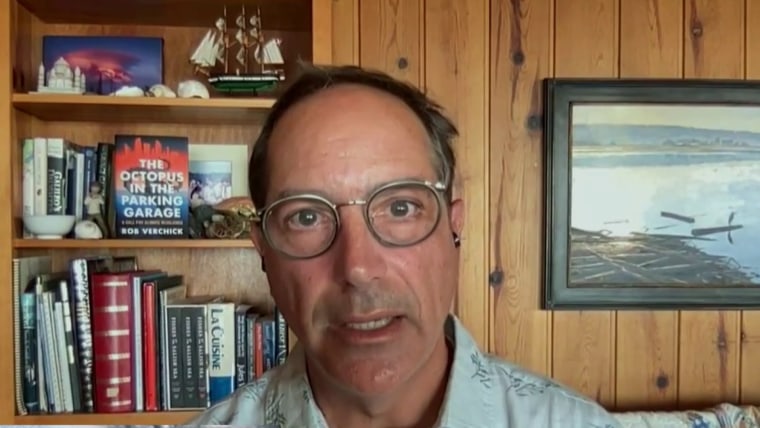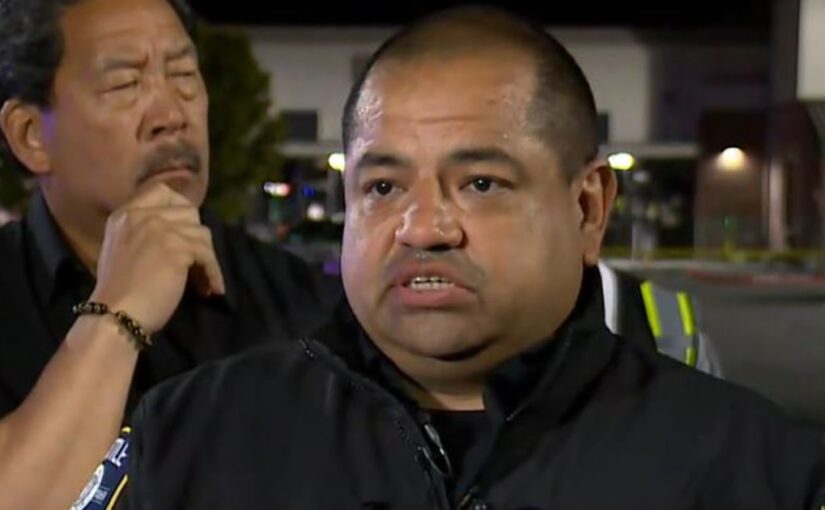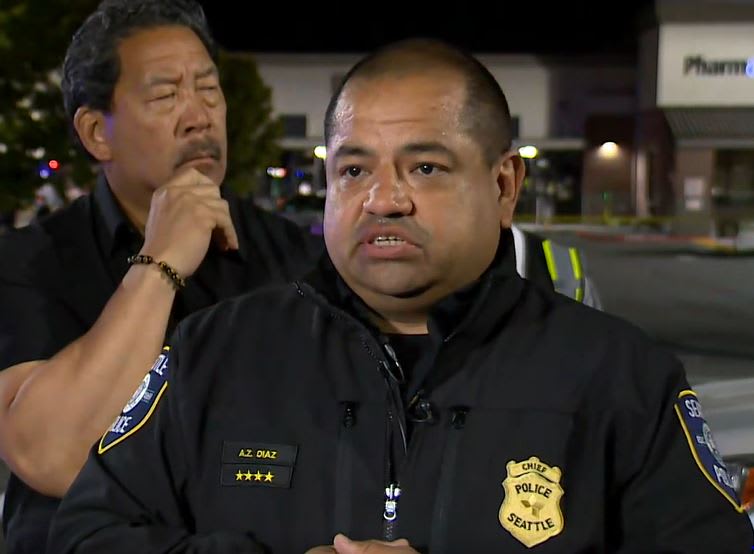During the last weeks of July, a handful of residents from Gloster, a majority-Black, low-income community in southwest Mississippi, prepared for a meeting with Drax Group, a U.K.-based energy company that operates a wood pellet production plant in the small town.
They planned to present the company with a list of demands meant to address their concerns about the plant’s industrial pollution. Priority items on the list include installing air quality monitors within a quarter-mile of the facility and requiring the plant to cease operations during nighttime hours, per Gloster’s noise ordinances.
But the meeting, like the one before it scheduled for June 2022, was canceled by the company.
“We weren’t really expecting them to answer any of our questions anyways,” said Krystal Martin, a Gloster native and a community leader. “We just want to see action from Drax.”
In an email statement to NBC News, Alex Schott, head of Drax North America communications, said the meeting was canceled due to “an unexpected scheduling clash.”
The canceled meeting is the latest in what has become a yearslong battle between local activists and Drax. Since the facility’s opening in 2016, residents have complained of deteriorating air quality and health, and the state’s environmental regulator has twice issued notices to Drax regarding violations of air pollution regulations.
The company’s Gloster facility is one of many such plants in the American South, which is the world’s wood pellet manufacturing hub. Wood pellets have been embraced by European countries in recent years in the movement toward “biomass” or “biofuels” as an alternative to fossil fuels, accelerated by Russia’s invasion of Ukraine.
Biomass fuels like wood pellets are broadly seen as renewable and carbon-neutral sources of energy, particularly in the European Union, where wood pellets are used mostly for electricity generation and even count toward the E.U.’s renewable energy targets for 2030. In 2022, Drax also received about $2.2 million a day in U.K. government subsidies to produce clean energy, according to Sky News.
In recent years, the biomass industry has come under increasing scrutiny. Many environmental groups argue that wood pellets are even worse than fossil fuels in terms of releasing carbon emissions.
Schott said sustainable biomass releases less carbon than alternative fuels, but a report from the Rachel Carson Council, an environmental nonprofit, found that burning wood pellets releases 65% more CO2 than coal, which is widely regarded as the dirtiest energy source.
Still, the wood pellet industry enjoys a reputation for sustainability, said Robert Musil, president and CEO of the Rachel Carson Council. Musil said that status is inflated by Drax’s efforts to market itself as a climate solution.
“They claim to be the good guys, but the industry is one of the most polluting and most damaging to the environment and to communities,” Musil said.
Drax first announced its plans to build its Gloster facility in 2013 and touted the project as a way to bring jobs to an area with few economic prospects. Drax said in an email that it created 70 permanent jobs at the Gloster facility and that 82% of wages go to employees living in rural Mississippi communities. Martin said only a few locals received work at the plant.
The situation has also caught the attention of environmental justice advocates who say Gloster is another example of air pollution disproportionately affecting communities of color. In September, Katherine Egland, a member of the board of directors of the NAACP, told Greenpeace that the plant and its U.K. government subsidies were perpetuating “environmental racism” because Gloster is a majority-Black community. Drax told Greenpeace that community safety was a top priority.
Gloster, which had a median income of under $15,000 in 2021 and has less than 900 residents, has no local school and only one small medical clinic with no presiding physicians. Most citizens regularly travel outside city limits to receive health care.
At the Drax plant, wood pellets are manufactured by turning wood into wood chips, drying the chips, then grinding them into a fine powder, which is shaped into pellets. In this process, Drax releases a range of pollutants.
Drax’s recent permit applications, which were submitted to the Mississippi Department of Environmental Quality and have been reviewed by NBC News, state that the plant emits several hazardous air pollutants, a group of chemicals regulated by the federal government for their potential to cause cancer and other serious health impacts, as well as volatile organic compounds, a group of pollutants that include substances that can cause liver, kidney and central nervous system damage.
Such emissions are legal in certain quantities as long as companies operating industrial plants receive a permit from the state. Drax currently has a permit to operate as a minor source of hazardous air pollutants and volatile organic compounds, which allows the company’s plant to emit less than 25 tons of hazardous air pollutants and 249 tons of volatile organic compounds per year.
It’s those emissions that have been the target of local activists, environmental groups and state regulators. In 2020, the Mississippi Department of Environmental Quality fined Drax $2.5 million for violating its permit’s annual limits on the release of volatile organic compounds. Drax said the company has taken the appropriate steps to come into compliance with volatile organic compound limits.
Outside Mississippi, Drax agreed to $3.2 million in state penalties in Louisiana just last year for air pollution violations, though it did not admit any wrongdoing.
In March, the Mississippi Department of Environmental Quality issued a notice of violation to Drax, saying its plant exceeded air pollution limits for emissions coming from the plant. The notice alleges that since April 2022, Drax has been operating without a permit as a “major source” polluter by emitting more than 25 tons of hazardous air pollutants annually.
Schott, head of Drax North America communications, said the company is working with environmental consultants to come into compliance.
“Drax is committed to environmental compliance and remains focused on transparency and open communication with the Environmental Protection Agency, MDEQ and the community,” Schott said in an email.
The March notice of violation to Drax serves only as an allegation, Chris Wells, executive director of the Mississippi Department of Environmental Quality, said in a phone interview.
“It was and still is an open case,” he said. “The allegations against Drax have not yet been adjudicated.”
The Mississippi Department of Environmental Quality’s next step after issuing the notice and receiving a response is to reach an amicable agreement with the company on the violations, then ultimately decide on the appropriate penalty.
If no agreement is reached, the department escalates the matter to the Mississippi Commission on Environmental Quality. Generally, repeat violations mean stronger penalties that may even affect a facility’s permit renewal, Wells said.
Patrick Anderson, an attorney working with the Environmental Integrity Project who has been monitoring Drax’s emissions since 2017, is skeptical of Drax’s commitment to environmental standards.
“What I have seen over and over with Drax and with a lot of other biomass companies is just a complete disregard for environmental compliance,” he said. “To the extent that they claim to be green or care about environmental issues — they do not. And they absolutely do not back that up with their actions.”
Local residents who spoke with NBC News say the impact of Drax’s alleged air pollution has been noticeable since the company first opened the Gloster facility.
“You get outside, and you can tell there’s a difference in the air,” said Jimmy Brown, a lifelong resident of Gloster who wears a face mask whenever he goes outside. “You can smell it and you’ll notice your eyes will burn, your nose will burn — and imagine just breathing that in for almost eight years without anyone telling you what’s going on.”
“You get outside, and you can tell there’s a difference in the air.”
Jimmy Brown, lifelong Gloster resident
Wells said that the Mississippi Department of Environmental Quality would alert the public to anything that might pose imminent danger to their health. “A violation of a permit does not trigger the same necessity, as it does not necessarily translate to a negative health impact,” he said.
The discontent from local residents, activists and environmental groups extends beyond Drax to state and federal regulators. Much of the local frustration stems from a community meeting on May 9, where more than 200 Gloster residents gathered to voice concerns about Drax to several officials from the EPA and the Mississippi Department of Environmental Quality.
Martin said that the local community was unaware of the March notice at the time of the meeting and that not one official mentioned it. The notice came to light following the meeting after Anderson submitted a request for records through the Freedom of Information Act.
That lack of transparency has led to anger and bitterness in the community, she said.
Adam Colette, a program director with Dogwood Alliance, an environmental nonprofit that has been working with the Gloster community since 2019, said that the state agencies’ responses have been “inadequate.”
At the federal level, the EPA is monitoring the situation. In a statement to NBC News, the EPA Region 4 office, which covers Mississippi, said primary enforcement falls to the state, though the agency routinely evaluates state enforcement programs and can engage with individual cases. The EPA declined to comment on its plans regarding the ongoing case.
Gloster citizens like Martin are hopeful that their advocacy will bring change to the small town — and they’re already planning for their next meeting with Drax.
“Some communities don’t have to worry about the air they breathe,” she said. “But we do. And clean air should always be free. We all should have the right to breathe free, clean air.”
Nidhi Sharma
Nidhi Sharma is an associate producer with the NBC News Climate Unit.









